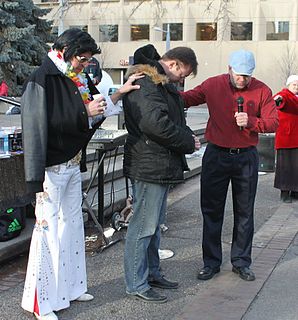A Quote by James May
I hate the idea of people nicking my stuff, but in all honesty, I'm pretty well off. If a genuinely desperate man on his last gasp nicks my coat from the pub on a freezing night, well, he's welcome to it. It'll change his life. Mine's only inconvenienced by having to buy another one.
Related Quotes
A distinguished man should be as particular about his last words as he is about his last breath. He should write them out on a slip of paper and take the judgment of his friends on them. He should never leave such a thing to the last hour of his life, and trust to an intellectual spurt at the last moment to enable him to say something smart with his latest gasp and launch into eternity with grandeur.
Man is at his furthest remove from the animal as a child, his intellect most human. With his fifteenth year and puberty he comes astep closer to the animal; with the sense of possessions of his thirties (the median line between laziness and greediness), still another step. In his sixtieth year of life he frequently loses his modesty as well, then the septuagenarian steps up to us as a completely unmasked beast: one need only look at the eyes and the teeth.
There came to him an image of man’s whole life upon the earth. It seemed to him that all man’s life was like a tiny spurt of flame that blazed out briefly in an illimitable and terrifying darkness, and that all man’s grandeur, tragic dignity, his heroic glory, came from the brevity and smallness of this flame. He knew his life was little and would be extinguished, and that only darkness was immense and everlasting. And he knew that he would die with defiance on his lips, and that the shout of his denial would ring with the last pulsing of his heart into the maw of all-engulfing night.
The most powerful drive in the ascent of man is his pleasure in his own skill. He loves to do what he does well and, having done it well, he loves to do it better. You see it in his science. You see it in the magnificence with which he carves and builds, the loving care, the gaiety, the effrontery. The monuments are supposed to commemorate kings and religions, heroes, dogmas, but in the end the man they commemorate is the builder.
Miserable is the man who loves a woman and takes her for his wife, pouring at her feet the sweat of his skin and the blood of his body and the life of his heart, and placing her in the hands of the fruit of his toil and the revenue of his diligence; for when he slowly wakes up, he finds that the heart that he endeavored to buy is given away freely and in sincerity to another man for the enjoyment of its hidden secrets and deepest love.
Many are the lives of men unwritten, which have nevertheless as powerfully influenced civilization and progress as the more fortunate Great whose names are recorded in biography. Even the humblest person, who sets before his fellows an example of industry, sobriety, and upright honesty of purpose in life, has a present as well as a future influence upon the well-being of his country; for his life and character pass unconsciously into the lives of others, and propagate good example for all time to come.
If Montaigne is a man in the prime of life sitting in his study on a warm morning and putting down the sum of his experience in his rich, sinewy prose, then Pascal is that same man lying awake in the small hours of the night when death seems very close and every thought is heightened by the apprehension that it may be his last.
































